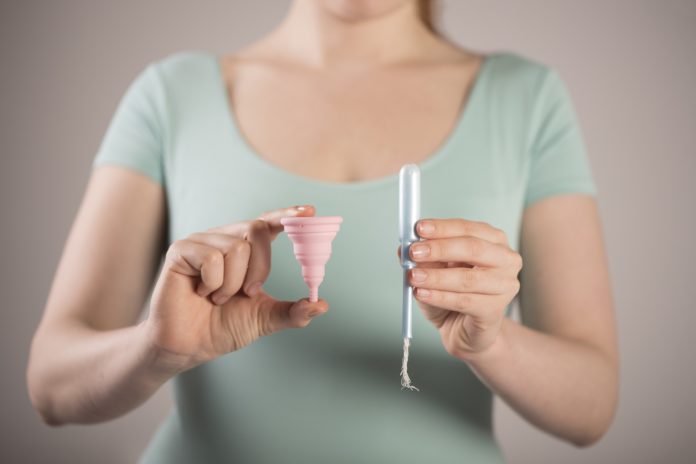Study analysing relative safety of menstrual cups, tampons and pads finds that all menstrual hygiene options have similar safety record
The first systematic review and meta-analysis of the international use of menstrual cups, including 43 studies and data from 3,300 women and girls – published in The Lancet Public Health journal, suggests they are safe and result in similar, or lower, leakage than disposable pads or tampons.
Four studies within the review (293 participants) compared leakage between different sanitary products, and found that levels were similar between menstrual cups and pads and tampons, while one found that leakage was significantly less.
Globally, menstruation can affect girls’ schooling and women’s experience of work, increase their disposition to urogenital infections if they use poor quality sanitary products, and even make both women and girls a target of sexual violence or coercion when they don’t have the funds to buy them. There are an increasing number of initiatives in both high- and low-income countries to combat ‘period poverty’, so it is essential that policy makers know which sanitary products to include in menstrual health programmes and puberty education materials.
Globally, menstruation can affect girls’ schooling and women’s experience of work, increase their disposition to urogenital infections if they use poor quality sanitary products, and even make both women and girls a target of sexual violence or coercion when they don’t have the funds to buy them
“Despite the fact that 1.9 billion women globally are of menstruating age – spending on average 65 days a year dealing with menstrual blood flow, few good quality studies exist that compare sanitary products,” says senior author Professor Penelope Phillips-Howard from the Liverpool School of Tropical Medicine, UK. “We aimed to address this by summarising current knowledge about leakage, safety, and acceptability of menstrual cups, comparing them to other products where possible.”
The study combines data from medical studies and grey literature – such as conference abstracts, reports and theses – for which participants reported their experiences of menstrual cups or their willingness to use them. The authors selected 43 studies involving 3,319 participants in both low- and middle-income countries (LMICs) (15 studies) and high-income countries (28 studies). They also compiled global information on the availability and costs of menstrual cups, conducted preliminary estimates on waste savings, and examined puberty education materials to assess the extent to which menstrual cups are referred to as an option.
The authors note that the quality of the studies included was low, and call for more, quality research in this area, and note that further studies are needed on cost-effectiveness and environmental effects between different menstrual products. In the review, some of the information was taken from reports not published in peer-reviewed journals and the focus of some studies was to evaluate other topics. Some data were from older studies, when reporting requirements were less stringent, or with menstrual cups that are no longer available. Most of the studies depended on self-reporting, which might have overestimated use of the menstrual cup.
Menstrual cups collect blood flow, rather than absorbing it as with pads and tampons. Like tampons, they are inserted into the vagina, before being emptied every 4-12 hours. There are currently two types: a vaginal cup which is generally bell-shaped, and a cervical cup which is placed around the cervix high in the vagina like a diaphragm for contraception. The materials used to make them are medical grade silicone, rubber, latex or elastomer and can last up to 10 years.


